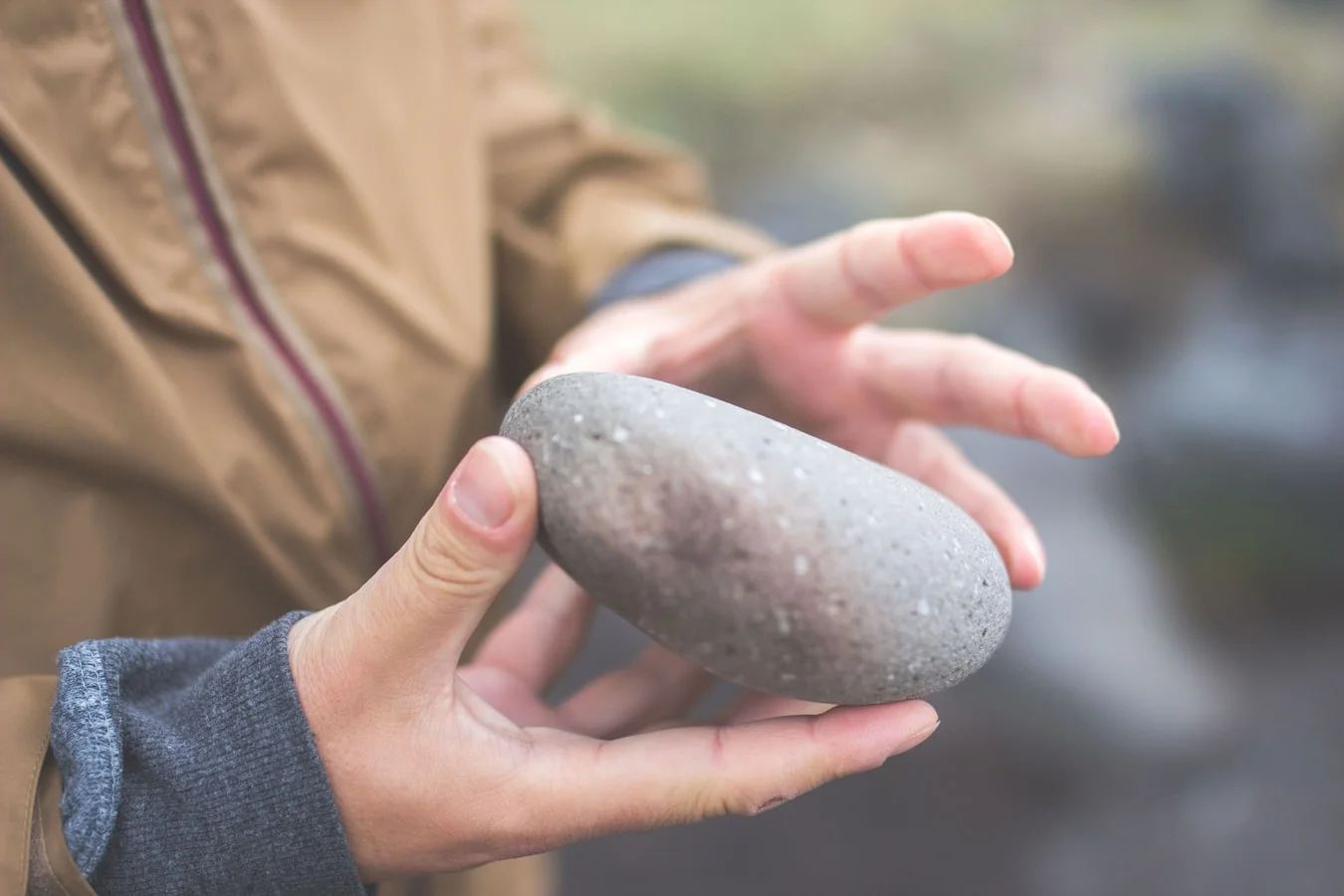Rock vs. Clay
by Bridget Nash
Anxiety is one of the most common mental health issues among teens and young adults. In fact, according to the Anxiety and Depression Association of America, “anxiety disorders affect 25.1% of children between 13 and 18 years old” (https://adaa.org/about-adaa/press-room/facts-statistics).
I had a 10 year old in my office a few months ago who was struggling with debilitating anxiety—particularly related to school. I found some great ideas on https://confidentcounselors.com and decided to try one.
I asked her what kinds of thoughts go through her head at school when she notices herself start to feel anxious. She said sometimes she feels like if she just tried harder or thought about it more, she could control the things that cause her anxiety. I hear this a lot from people who battle mental health disorders—that if they just tried harder it would go away.
After we talked for a while, I asked her to close her eyes and hold out her hand. I placed a small rock in her palm. I instructed herr to form whatever was in her hand into a snake. She dutifully tried, but soon announced, “I can’t.” “Why not?” I questioned. “Because it’s too hard,” she answered. I waited for a moment and then asked, “What if you tried harder? Think more about it.” I could see her mind try to focus more as she squeeze her eyes tightly and rolled the stone between her hands. A few seconds longer and then I told her to open her eyes. “It’s a rock,” she observed.
I asked her to close her eyes and hold out her hand again and replaced the rock with a small blob of modeling clay. Just as before, I instructed her to turn the object in her hand into a snake, which she did with ease. “Did you notice any differences?” I asked. She replied that the second snake was a “piece of cake” with a laugh.
“Does the rock remind you of anything?” I asked. She spent a few moments coming up with ideas before asking me what I thought it represented. “I think this rock is kind of like your anxiety. You can ‘just try harder’ or ‘think about it more,’ but at the end of the day—that rock is going to remain a rock. There are some things in life, like that rock, that we don’t have control over. And then there are other things, like the modeling clay that are easy for us to control. Anxiety often tricks us into thinking we can control things by worrying and worst-case-scenario planning. But giving yourself permission to accept some things are out of your control might help take some of the pressure off.”
We spent the rest of our time together making a list of all the things she can and cannot control in her life. On a piece of paper, we made two columns a “Clay” (can control) list and a “Rock (can’t control) list. On the Clay side she wrote:
getting my homework done
being nice to my little sister
deciding to try out for softball
who I sit by at lunch
On the Rock side she wrote:
the weather
if other girls are mean to me
my parents’ divorce
To her credit, all these things are tough to face, at any age—let alone ten!
For some people who have mild, occasional anxiety, having a list of things they can’t control gives them relief. They have a concrete catalog, black and white, areas of control and areas of no control. However, for others who struggle more pervasive anxiety, just making a list doesn’t quite cut the mustard, so to speak.
Just because we can’t control something doesn’t mean we can’t cope with it. For each item in the Rock column, I asked my client to come up with something she could do for or say to herself in times when she cannot control her circumstances. For example, she could not control if other girls at school were mean to her, but she could control if she was mean back, she could tell a teacher, find someone else to sit by or talk to. All of these are great coping skills!
Your rock and clay lists may look very different from hers. Maybe you’re frustrated with a family member, trying to get into your preferred college, a fight you had with your best friend, a seemingly dead-end job, etc. Those things might not be within your control, but you can cope with them!
Instead of saying, “I hate my job and there’s nothing I can do to control it, so I’m just going to be miserable” we can find ways to cope. Make a list of things that are in your control related to making your day at work better. You may consider:
I can make and enjoy a nice breakfast before my shift
I can listen to my favorite music in the car on my way to work
I can take deep breaths when I feel myself get upset
I can choose to smile at people
I can take a walk on my break to get a chance of scenery
Life can be overwhelming—especially when you struggle with anxiety, but you are NOT powerless! Make a mental (or physical) list of what you can and cannot control (clay and rocks), and equip yourself with easily-accessible coping skills to pull out when you need them!





